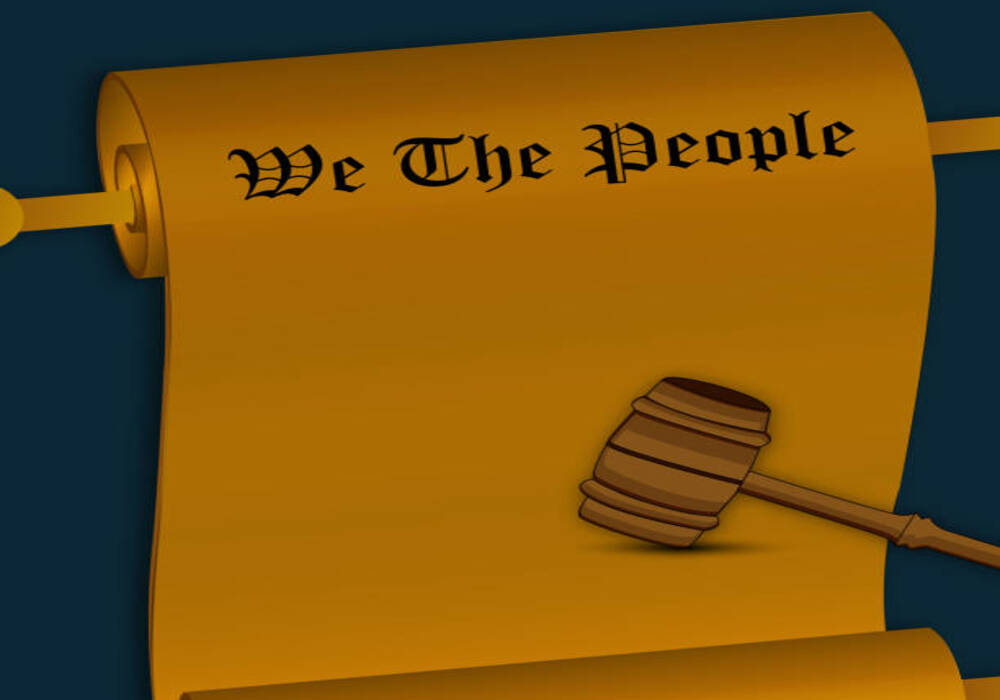
No person shall be deprived of his life or personal liberty except according to procedure established by law nor shall any person be denied equality before the law or the equal protection of the laws within the territory of India.
Article 21 uses three crucial expressions, those are listed below:
1. Right to life
2. Right to personal liberty.
3. Procedure established by law
Right to life:
The fundamental right provided by Article 21 is one of the most important rights that the Constitution guarantees.
The Supreme Court of India has described this right as the ‘heart of fundamental rights’.
The right specifically mentions that no person shall be deprived of life and liberty except as per the procedure established by law. This implies that this right has been provided against the State only. State here includes not just the government, but also, government departments, local bodies, the Legislatures, etc.
Any private individual encroaching on these rights of another individual does not amount to a violation of Article 21. The remedy for the victim, in this case, would be under Article 226 or under general law.
The right to life is not just about the right to survive. It also entails being able to live a complete life of dignity and meaning.
Right To Live with Human Dignity
In Sunil Batra v. Delhi Administration, the Supreme Court reiterated with the approval the above observations and held that the right to life included the right to lead a healthy life so as to enjoy all faculties of the human body in their prime conditions. It would even include the right to protection of a persons tradition, culture, heritage and all that gives meaning to a mans life. It includes the right to live in peace, to sleep in peace and the right to repose and health.
Right to Reputation
Reputation is an important part of ones life. It is one of the finer graces of human civilization that makes life worth living. The Supreme Court referring to D.F. Marion v. Minnie Davis in Smt. Kiran Bedi v. Committee of Inquiry held that good reputation was an element of personal security and was protected by the Constitution, equally with the right to the enjoyment of life, liberty, and property. The court affirmed that the right to enjoyment of life, liberty, and property. The court affirmed that the right to enjoyment of private reputation was of ancient origin and was necessary to human society.
Procedure Established By Law:
The chief goal of Article 21 is that when the right to life or liberty of a person is taken away by the State, it should only be according to the prescribed procedure of law.
The Supreme Court has widened the scope of procedure established by law and held that merely a procedure has been established by law a person cannot be deprived of his life and liberty unless the procedure is just, fair and reasonable. It is thus now well established that the procedure established by law to deprive a person of his life and personal liberty, must be just, fair and reasonable and that it must not be arbitrary, fanciful or oppressive, that the procedure to be valid must comply with the principles of natural justice.
Maneka Gandhi vs. Union of India Case (1978):
This case overturned the Gopalan case judgement. Here, the SC said that Articles 19 and 21 are not watertight compartments. The idea of personal liberty in Article 21 has a wide scope including many rights, some of which are embodied under Article 19, thus giving them ‘additional protection’
The Court gave a list of rights that Article 21 covers based on earlier judgments. Some of them are:
Right to privacy
Right to go abroad
Right to shelter
Right against solitary confinement
Right to social justice and economic empowerment
Right against handcuffing
Right against custodial death
Right against delayed execution
Doctors’ assistance
Right against public hanging
Protection of cultural heritage
Right to pollution-free water and air
Right of every child to a full development
Right to health and medical aid
Right to education
Protection of under-trials
Article 21 cannot be suspended during an emergency. The 44th Amendment of the Constitution provided that this article could not be suspended even during an emergency.
Concluding Remarks:
Indian judiciary provided excellent elucidation to right to life and personal liberty under Article 21 of the constitution. The Supreme Court not only explained the instinctive human qualities of the Article 21 but also established certain procedure to implement them. This makes the Rule of Law magnificent and meaningful. Each interpretation or the procedure laid down with regard to Article 21 is particularly aimed to achieve justice mentioned in the Preamble through all round development of the citizens. Each explanation provided attempts to fulfil the basic needs of the human being while safeguarding ones dignity. It means to strive for all round development of a person so that justice shall triumph.
Sources/ Inputs collated from:
The Constitution of India, 1950
Legalserviceindia articles
While every care has been taken to ensure the accuracy/ authenticity of the above, the readers are advised to recheck/reconfirm the same from the original sources/ relevant departments. It is based upon relevant law and/or facts available at that point of time and prepared with due accuracy & reliability. By the use of the said information, you agree that the company is not responsible or liable in any manner for the authenticity, accuracy, completeness,errors or any kind of omissions in this piece of information for any action taken thereof. This is not any kind of advertisement or solicitation of work by a professional. The company shall in no way be responsible for any loss or damage suffered to any person on account of the same.
Author - CA Jatin Minocha
Phone- 99115-41774
Comment: